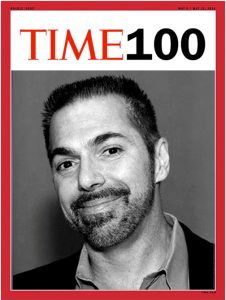
Named one of TIME Magazine’s 100 most influential people, Robert Lanza has made extraordinary contributions to the science world. His main areas of focus include stem cells and regenerative medicine, specifically their potential to provide therapies for some of the world’s most deadly and debilitating conditions. Currently, Robert Lanza is Head of Astellas Global Regenerative Medicine, and is Chief Scientific Officer of the Astellas Institute for Regenerative Medicine and (formerly Ocata Therapeutics/ Advanced Cell Technology), and Adjunct Professor at Wake Forest University School of Medicine.
Robert Lanza attended the University of Pennsylvania where he received both his B.A. and Doctor of Medicine degrees. He was also named a University Scholar as well as a Benjamin Franklin Scholar.
In 2007, Robert Lanza published a feature article, “A New Theory of the Universe”. The article was published in The American Scholar, a leading intellectual journal known for previously publishing the works of scientific greats such as Albert Einstein, Margaret Mead, and Carl Sagan, among others. In “A New Theory of the Universe”, Robert Lanza discusses how biology should be placed above other sciences in an attempt to solve one of nature’s biggest puzzles to date, the theory of everything. This new theory became known as biocentrism.
A few years later, in 2009, Robert Lanza co-authored a book entitled, “Biocentrism: How Life and Consciousness are the Keys to Understanding the True Nature of the Universe”. In the book, he explains how space and time are forms of animal sense perception, rather than external physical objects. Understanding this simple yet revolutionary idea more fully yields answers to several major puzzles of mainstream science. It offers a new way of understanding everything from the microworld to the forces, constants, and laws that shape our entire universe.
Biocentrism shocked the world with a radical rethinking of the nature of reality. But that was just the beginning. In 2016, Dr. Lanza wrote a follow-up book on biocentrism called “Beyond Biocentrism: Rethinking Time, Space, Consciousness, and the Illusion of Death.” Beyond Biocentrism provides a deeper and more thorough exploration into the subject, including chapters that solely involve key issues such as death, and important ancillary investigations into topics such as awareness in the botanical world, how we gain information, and whether machines can ever become conscious, among others.